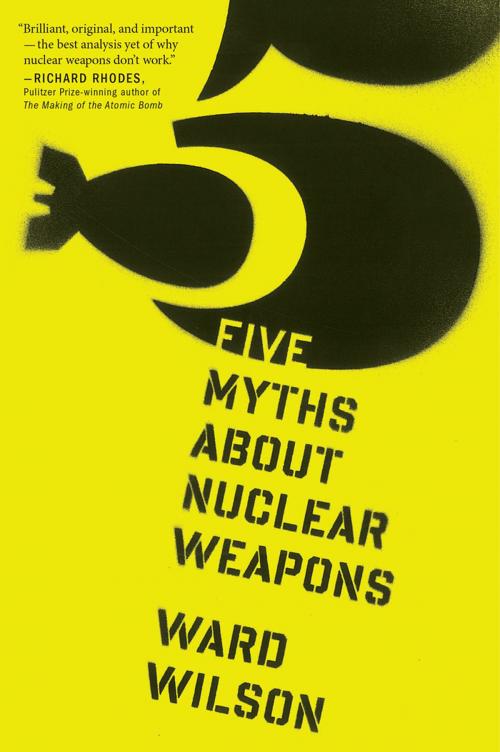Five Myths About Nuclear Weapons
Nonfiction, Social & Cultural Studies, Political Science, Politics, Arms Control, Government, Public Policy, History, World History| Author: | Ward Wilson | ISBN: | 9780547858173 |
| Publisher: | HMH Books | Publication: | January 15, 2013 |
| Imprint: | Mariner Books | Language: | English |
| Author: | Ward Wilson |
| ISBN: | 9780547858173 |
| Publisher: | HMH Books |
| Publication: | January 15, 2013 |
| Imprint: | Mariner Books |
| Language: | English |
An explosive rethinking of the power and purpose of nuclear weapons—and a call for radical action
Nuclear weapons have always been a serious but seemingly insoluble problem: while they’re obviously dangerous, they are also, apparently, necessary. This groundbreaking study shows why five central arguments promoting nuclear weapons are, in essence, myths. It is a myth:
• that nuclear weapons necessarily shock and awe opponents, including Japan at the end of World War II
• that nuclear deterrence is reliable in a crisis
• that destruction wins wars
• that the bomb has kept the peace for sixty-five years
• and that we can’t put the nuclear genie back in the bottle
Drawing on new information and the latest historical research, Wilson poses a fundamental challenge to the myths on which nuclear weapons policy is currently built. Using pragmatic arguments and an unemotional, clear-eyed insistence on the truth, he arrives at a surprising conclusion: nuclear weapons are enormously dangerous, but don’t appear to be terribly useful. In that case, he asks, why would we want to keep them?
This book will be widely read and discussed by everyone who cares about war, peace, foreign policy, and security in the twenty-first century.
An explosive rethinking of the power and purpose of nuclear weapons—and a call for radical action
Nuclear weapons have always been a serious but seemingly insoluble problem: while they’re obviously dangerous, they are also, apparently, necessary. This groundbreaking study shows why five central arguments promoting nuclear weapons are, in essence, myths. It is a myth:
• that nuclear weapons necessarily shock and awe opponents, including Japan at the end of World War II
• that nuclear deterrence is reliable in a crisis
• that destruction wins wars
• that the bomb has kept the peace for sixty-five years
• and that we can’t put the nuclear genie back in the bottle
Drawing on new information and the latest historical research, Wilson poses a fundamental challenge to the myths on which nuclear weapons policy is currently built. Using pragmatic arguments and an unemotional, clear-eyed insistence on the truth, he arrives at a surprising conclusion: nuclear weapons are enormously dangerous, but don’t appear to be terribly useful. In that case, he asks, why would we want to keep them?
This book will be widely read and discussed by everyone who cares about war, peace, foreign policy, and security in the twenty-first century.















